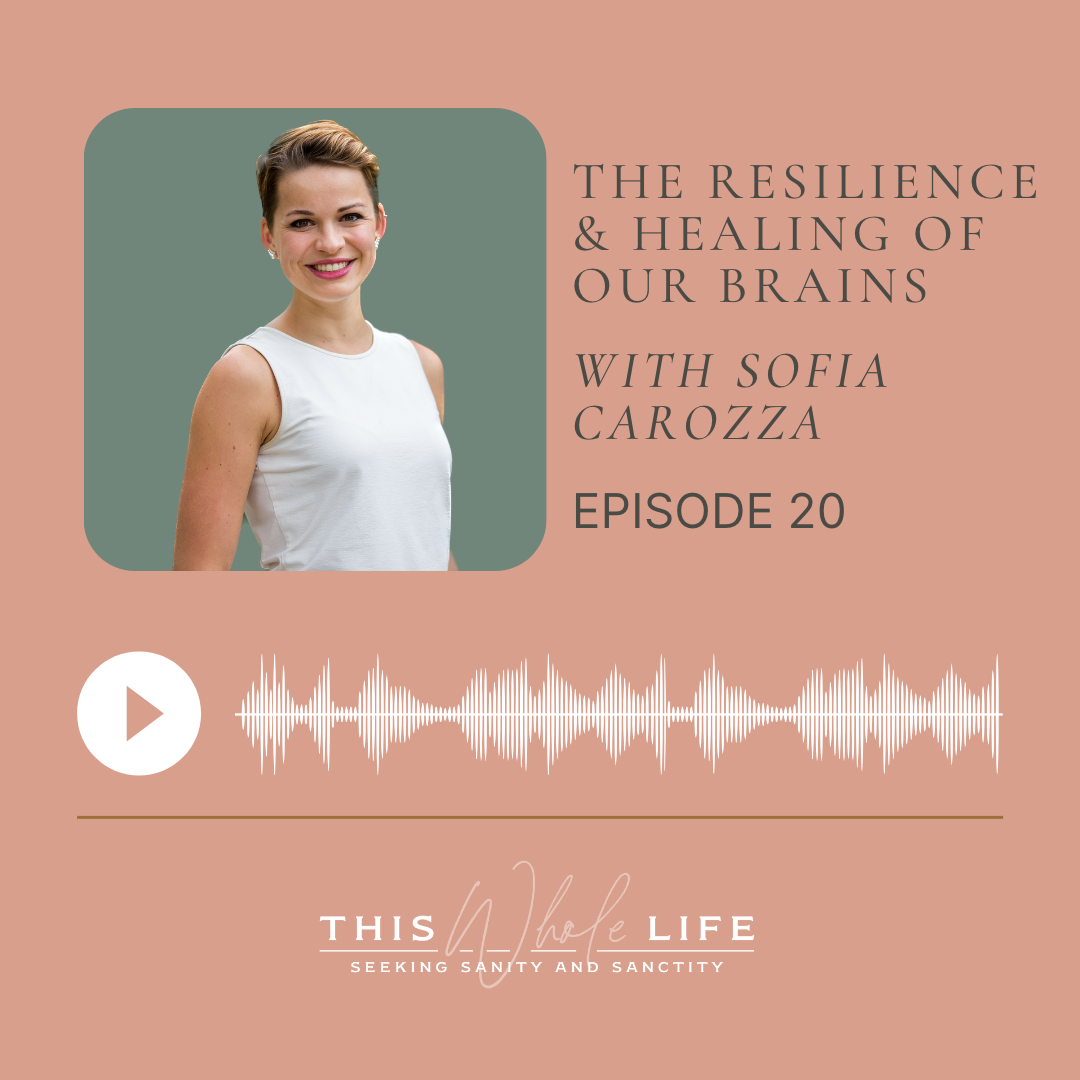Show Notes
Episode 20. The Resilience & Healing of our Brains with Sofia Carozza
Episode 20. The Resilience & Healing of our Brains with Sofia Carozza
"Therefore, we are not discouraged; rather, although our outer self is wasting away, our inner self is being renewed day by day. For this momentary light affliction is producing for us an eternal weight of glory beyond all comparison..."
~ 2 Corinthians 4:16-17
The last 50 years have seen incredible development in neurobiology and our understanding of the human brain. Yet we, as people of faith, know that humans are so much more than just a "brain in a body"; in fact, we are a deep and mysterious unity of mind, body, soul, brain, and even our relationships. How can we better know ourselves and our place in God's plan by better understanding our brains?
Join this fascinating conversation with Sofia Carozza, a neuroscientist and theologian. Pat & Sofia discuss mental health and healing, especially with regards to childhood adversity (experiences of violence, neglect, poverty, serious illness, etc.). These difficult circumstances in childhood can affect the very structures of our brain, but one's path is not determined by those experiences; rather, we can know healing and restoration through profoundly simple means like healthy relationships grounded on love!
Sofia Carozza is a Marshall Scholar at the University of Cambridge, where she is completing a PhD at the MRC Cognition and Brain Sciences Unit. In her research, she is seeking to understand how early experiences of adversity shape the biological and psychological development of children. Sofia completed undergraduate studies in neuroscience and theology at the University of Notre Dame where she was the valedictorian of the Class of 2019, and she has an MPhil in basic and translational neuroscience from the University of Cambridge. Sofia is also the co-host of The Pilgrim Soul, an engaging and insightful podcast.
Show Notes
Sofia’s call to understand childhood adversity and brain development through her experience of suffering & resurrection in Paraguay
Childhood adversity, through either direct threat or deprivation, can affect the structures and the psychology of the brain
At the same time, these effects are not present in all children who face adversity at young age
And, even more importantly, our understanding of neuroplasticity (the brain’s continual process of change and development throughout the entire lifespan) now shows us ways that the brain can create more healthy structures and neural patterns throughout life
This kind of healing can come from remarkably simple means: loving relationships, attention to one’s bodily and mental health, prayer and meditation, etc.
The story of Naaman the Syrian as an example of miraculous healing through relatively simple means (2 Kings 5:1-14)
That Hideous Strength
by C.S. Lewis
Take in some of Sofia’s fantastic articles and scholarly research, including:
Check out The Pilgrim Soul, a great podcast hosted by Sofia, her sister Giuliana, and their good friend Adrianna
Sofia’s Valedictory Address at the
University of Notre Dame’s
2019 Commencement ceremony
Challenge By Choice
Invite the Lord to glorify a wound in your life
Enter into a time of prayer with the passage of Thomas’ encounter with the Resurrected Christ (John 20:24-29) and the Seven Core Wounds (see above)
Ask the Lord to identify a wound that is motivating any unhealthy and unhelpful thoughts and actions
Then, invite the Lord to touch and redeem that place of woundedness
Not merely to remove or eliminate the wound, but to glorify it (like Christ’s own glorified wounds) that you might know even greater restoration and meaning through it



